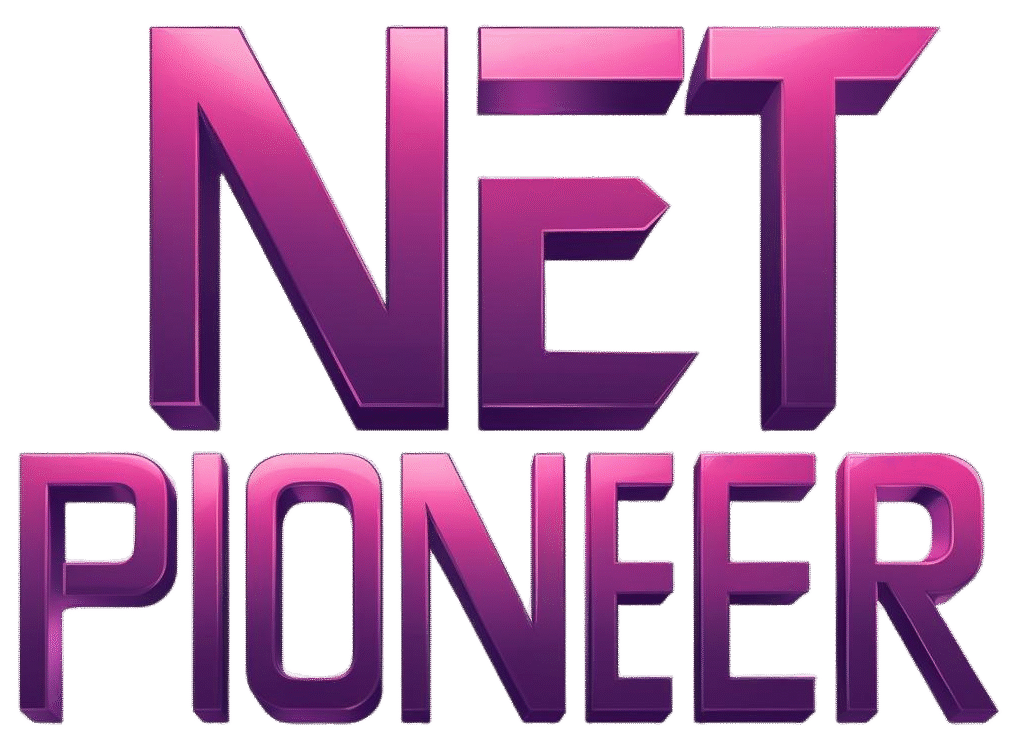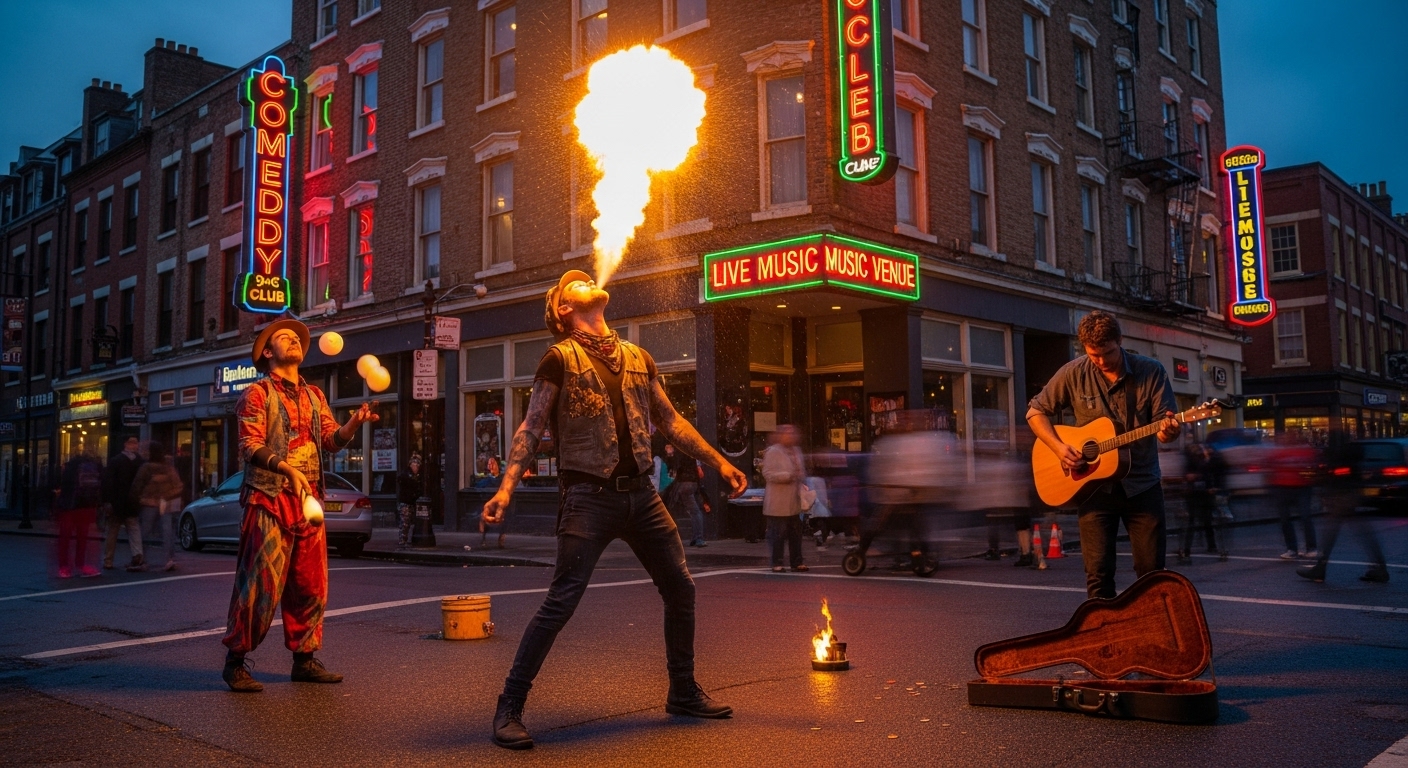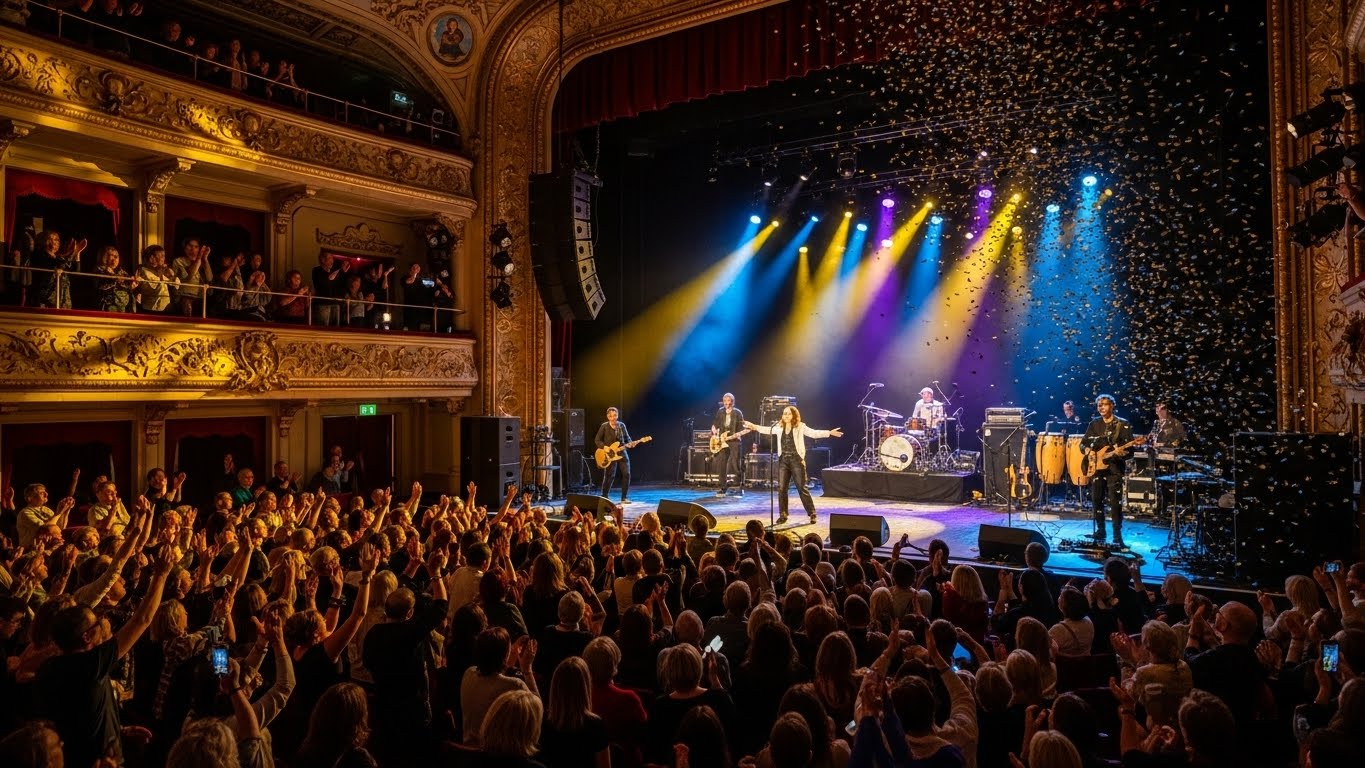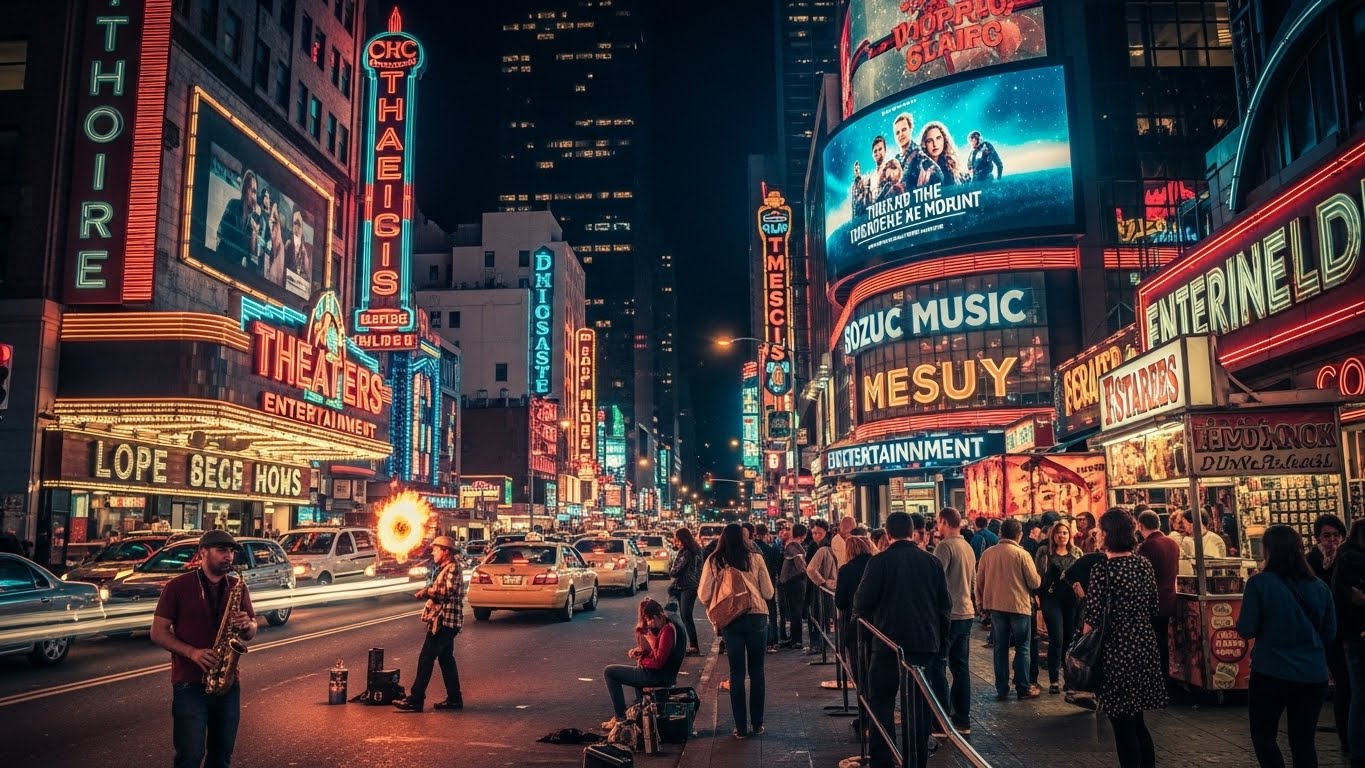Entertainment is a timeless element of human culture. It has the power to shape moods, provoke thought, and bring people together across time, distance, and even cultures. From the ancient theaters of Greece to the virtual worlds of today, entertainment has undergone radical transformations, adapting to technology, societal changes, and the ever-evolving tastes of global audiences. But where did it all begin, and where is it headed? In this post, we’ll explore the fascinating journey of entertainment, how it has changed over the years, and what exciting developments lie ahead.
A Glimpse into the Past: Entertainment in Ancient Times
In ancient societies, entertainment was largely social and communal. It often involved activities that could unite entire communities, such as live performances, festivals, and sporting events. The Greek playwrights like Sophocles and Euripides set the stage for what would later become one of the most celebrated art forms: theater. These performances were more than just for amusement; they were tools for education, political commentary, and social reflection.
Similarly, in Ancient Rome, gladiatorial games were both a brutal form of entertainment and a way to demonstrate power and control. Such events weren’t just about fighting—they were spectacles that displayed the might of an empire, with thousands of spectators gathering in massive amphitheaters to witness the drama unfold.
The Birth of Modern Entertainment: Cinema Takes Center Stage
Fast forward to the late 19th century, when cinema emerged as a groundbreaking form of entertainment. With the invention of motion pictures, a new kind of storytelling was born—one that was accessible to mass audiences. In the early days, silent films captivated people with their visual storytelling, and the arrival of sound in the late 1920s further elevated the cinematic experience.
The Golden Age of Hollywood in the 1930s and 1940s created a lasting cultural impact, with iconic films like Gone with the Wind and Casablanca becoming part of the collective cultural memory. Movie theaters became central to social life, and movie stars became larger-than-life figures. The appeal of film wasn’t just in its ability to tell stories; it was about the experience—escaping into a world of fantasy, drama, or romance for a couple of hours.
The Television Era: Shaping the Modern World of Entertainment
Television revolutionized entertainment in the 20th century. By the 1950s, families across the world were gathering around their TV sets to watch the latest sitcoms, dramas, and variety shows. With the advent of color television and cable networks, the variety of programming grew exponentially. Shows like I Love Lucy, The Ed Sullivan Show, and later, Friends and The Simpsons, became cultural touchstones.
Television was more than just entertainment; it was also a powerful force for shaping public opinion, influencing trends, and even shifting political landscapes. From the 1960s, when events like the moon landing and political debates were broadcast live to the world, to the emergence of reality television in the late 20th century, TV remained a dominant force in entertainment. It created a new kind of shared experience, uniting audiences over popular programs, sports events, and news coverage.
The Digital Revolution: Streaming and Interactive Entertainment
The digital age brought an entirely new paradigm to entertainment consumption. In the early 2000s, the internet began reshaping the way we access media. With the arrival of streaming services like Netflix, Hulu, and YouTube, viewers could now watch content whenever and wherever they wanted, on their own terms. This marked the decline of traditional broadcast television, giving rise to the era of on-demand, personalized entertainment.
One of the most significant changes was the rise of the digital media creator. Platforms like YouTube allowed virtually anyone with a camera and internet access to become a content creator. This democratization of entertainment led to a new kind of celebrity: influencers. These individuals, often sharing their personal lives, skills, or opinions, amassed large followings and became integral parts of the entertainment ecosystem. The idea that entertainment could come from everyday people, not just polished actors or musicians, became a major cultural shift.
At the same time, the gaming industry exploded. Video games have evolved from simple pixelated forms into sophisticated, immersive experiences. The modern gamer is no longer confined to the screen but engages in multiplayer worlds that are rich in narrative and interaction. Streaming platforms like Twitch have allowed gamers to share their experiences with a global audience, creating a unique form of entertainment that combines both play and performance.
Social Media and the Evolution of Personal Entertainment
Social media platforms, such as Instagram, TikTok, and Snapchat, have turned the way we engage with entertainment on its head. These platforms offer a blend of entertainment and interaction, allowing users to consume content while also actively participating in it. The concept of virality has become central to modern entertainment, with trends, challenges, and memes spreading rapidly across the globe.
The user-generated content boom has opened up a space for micro-celebrities and influencers to emerge. These individuals don’t rely on traditional media channels to achieve fame—instead, they connect directly with their audiences through social media, creating a more personal, authentic form of entertainment. This shift has blurred the lines between creator and audience, making the consumer an integral part of the entertainment process.
The Future of Entertainment: Immersion and Beyond
Looking ahead, the future of entertainment seems destined to be more immersive and interactive than ever before. Virtual Reality (VR) and Augmented Reality (AR) are pushing the boundaries of storytelling, allowing users to step inside the narrative and interact with the world around them in ways previously thought impossible. In gaming, this means fully immersive experiences where players can explore entire worlds, interact with others, and live out their own stories in real-time.
At the same time, Artificial Intelligence (AI) is becoming an increasingly important player in the entertainment space. AI is being used to create personalized content recommendations, generate music, and even produce scripts for movies and television. The potential for AI to create entirely new forms of entertainment, tailored to individual tastes, is limitless.
Streaming services are already exploring how to integrate these technologies. For example, some platforms are experimenting with interactive movies where viewers can make choices that influence the story’s outcome—think of Netflix’s Bandersnatch, which allowed viewers to control the plot’s direction. This represents the next frontier: entertainment that is not just consumed but experienced and shaped by the viewer.
Conclusion: Entertainment’s Infinite Potential
The evolution of entertainment is a testament to the creativity and adaptability of humanity. From the live performances of ancient civilizations to the digital worlds we immerse ourselves in today, entertainment has continuously reinvented itself. And with technology advancing at an unprecedented pace, it’s clear that this journey is far from over. Whether it’s through more immersive digital experiences, AI-generated content, or new forms of social interaction, the future of entertainment holds infinite possibilities.
What remains certain, however, is that entertainment will always be at the heart of human connection. It’s an essential part of our lives, offering moments of joy, reflection, and shared experiences. No matter how it evolves, one thing is clear: the entertainment landscape will continue to surprise and delight us for generations to come.



